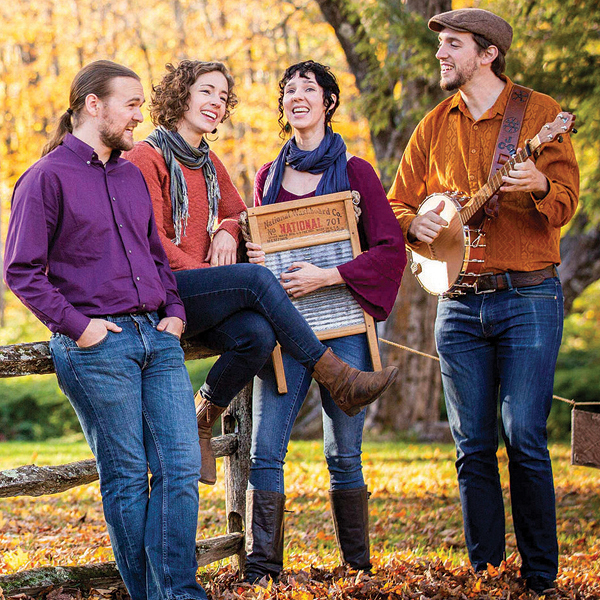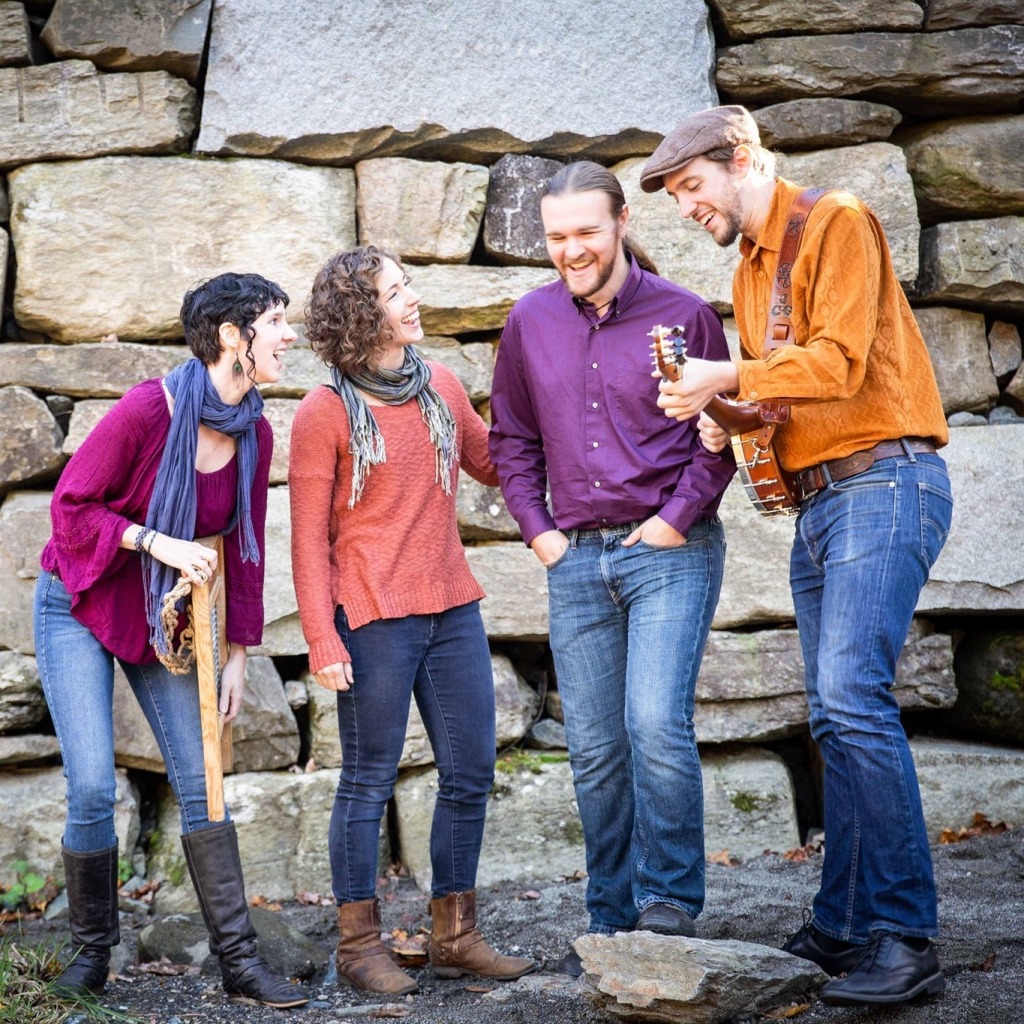Acclaimed New England based vocal group Windborne will bring their eclectic mix of traditional folk music and gorgeous harmonies to the Fort Hunter Barn in Harrisburg on Saturday, January 29th in an event sponsored by the Susquehanna Folk Music Society. The group will host a Community Sing Workshop at 4:30, followed by a full concert at 7:30. More information and official SFMS Covid Safety Policies can be found on the Susquehanna Folk Music Society website. Tickets for the Community Sing Workshop are $15 General Admission, $13 for SFMS Members, and $10 for students. Tickets for the Concert are $24 General Admission, $20 for SFMS Members, and $10 for students (ages 3-22). Tickets will be available at the door or online.
Earlier this week, Susquehanna Folk Music Society Staff Writer Mary-Grace Autumn Lee got to chat with Windborne member Jeremy Carter-Gordon ahead of their January 29th Concert.
______________________________________________________
Windborne is a New England based group that uses their voices to share traditional folk music from around the world. Although their music is primarily rooted in American Folk, the members of the band have done extensive research and traveling to include folk music from the Republic of Georgia, Corsica, Bulgaria, the Basque region, and Quebec into their repertoire. The band also incorporates storytelling into their performances as a way to enrich audience members on the history and tradition of the music they sing. The band is a quartet and is made up of the members Lauren Breunig, Jeremy Carter-Gordon, Lynn Rowan, and Will Thomas Rowan. Although all members of Windborne are passionate about educating and performing, their main goal with their music is to change hearts.
______________________________________________________
I had the honor of getting to interview band member Jeremy Carter-Gordon about Windborne’s music as well as learn what audience members can expect from their upcoming performance for Susquehanna Folk.
Not only have the members of Windborne done extensive research on folk music from around the world, but the band has also traveled performing and picking up songs from different countries. What are a few similarities and differences you have noticed in folk music from different cultures?
Windborne is specifically interested in the songs from countries and cultures that have traditions of harmony singing. While this is common in many western traditions, there are plenty of places around the world that don’t use harmony in their music. Learning about the different ways of creating sound, what intervals or timbres are considered as “sweet” or “harsh” sounding, and playing with time signatures is always interesting. As we have done more of our own arranging in the past 5 years, Windborne is able to draw on some of these wider ideas of what music can be to crowd arrangements that are interesting, unexpected, and compelling.
Windborne pulls from folk music from around the world. How do you pay respect to cultures other than your own while learning and presenting their songs?
There are so many different ways of using a human voice, and when we learn songs from a tradition we do our best to seek out singing masters from that culture to help us with the vocal production, pronunciation, and insider perspective on the way the music is conceived of. For example, Corsican music is improvised within a structure, and the different singing roles all have a different and specific relation to each other. Certainly a skill musician could listen to a recording of Corsican music, notate it, and then send those notes. It may even sound like Corsican music, but they would be missing the very core of what makes that singing special. We also make sure to share this knowledge, cultural context and attribution with our audiences, so that they could look into these traditions further.
All of you are classically trained singers and have been singing and teaching for years. How has this experience helped you with learning folk music which is traditionally passed down informally, and is taught through small gatherings or aurally?
Actually, Windborne’s background in music training is pretty widely varied, from no formal training to quite a lot. While some of us have a more classical background (Will has a masters in choral conducting!) our first training really was informal singing parties in the folk community around New England where we grew up. This helped us be comfortable with improvising harmonies, experimenting, and most importantly: listening. The ability to listen deeply is incredibly important for harmony singing, and transforms a group from just people singing different notes near each other to creating something far greater than the sum of its parts.
Not only are your performances filled with folk songs, but you also do a lot of storytelling. Why do you think it’s important to include storytelling into your performances?
This really comes back to our commitment to sharing context and history of the songs that we sing. Because so much of our music comes from a time and a place different than our own, We find it important to help our audience think about the songs closer to the way we, or the people who wrote them, hear and appreciate them. As we start to sing more songs with a message of social justice, it’s important to ask that we don’t just sing beautiful music, but that the messages the songs carry are made clear. Sometimes music can change hearts, even when minds are made up.
Windborne is known for taking old songs and connecting them to the social issues of today. What are things you look for in an old song that you think would resonate with people today?
Usually when we are looking at this songs, we are stunned by how relevant and modern they feel. We sometimes avoid songs that are speaking super specifically about a particular event that is not going to be understood or familiar to our audiences. But there is so much out there that makes it clear that modern day struggles are not new or unique, but tied to a long history of people fighting for a better world. Using old songs can be powerful because it’s often easier to see injustice with the distance of the past, and we can then tie it back to the events we see going on today. We often add new verses to songs when we find it will help draw those connections.
Before your show for Susquahanna Folk, you will be hosting a Community Sing. What can people expect from this event, and why is it important to host a community sing?
Singing in community is something I’ve been part of the human experience for probably as long as anything! It’s becoming rarer and rarer in today’s world, but it’s an important part of how we became singers, and we love gathering people to sing! As for what to expect, we will be teaching songs by ear, no experience or sight reading requires! All voices are welcome and appreciated so just bring yourself, a mask, and enthusiasm to try new things!
Windborne will be performing live on January 29th, 2022 at the Fort Hunter Barn. For more information about tickets and concert safety policies, please visit the Susquehanna Folk website.
______________________________________________________
Mary-Grace Autumn Lee is a Harrisburg area musician. You can find her on instagram @thatdulcimergirl, her youtube channel, and her official site. Mary-Grace also plays with the Celtic/Americana band Seasons.


